During the Corona closure of our Munich Institute, the MGH invite you to join us on a trip through 200 years of medieval research history: The series “Treasures of the MGH Library and Archive” presents a treasure trove of rare and fascinating items illustrating key moments of our history. Enjoy discovering!
On Saturday, April 29 1933, the chairman of the central board of directors of the MGH, Paul Fridolin Kehr, convened a meeting with six members of the board. The minutes of this sitting reveal the precarious situation of the MGH in the light of current political developments. Kehr reported on his recent talk with the new Reichsminister for internal affairs, Wilhelm Frick, one of the key figures in establishing the Nazi dictatorship in Germany. They had spoken about important subjects such as the financing of the MGH and the appointment of a future chairperson of the board of directors. Regarding the financing, Kehr related that „the Herr Reichsminister displayed the best of intentions, but he is apparently dependent on the ministry of finances.“
The budget allocated to the MGH by the state treasury had in fact been halved in the last two years. Kehr had made it clear to the Reichsminister that he was not prepared to continue in office after 1934 under these conditions. He therefore urged the central board of directors to pass a resolution demanding that the financial means be raised. Also regarding the accounting, Kehr had nothing good to report: apparently the minister now demanded that the Monumenta agree to a declaration that, in the case of their being disbanded, „their entire assets would pass into the possession of the state.“
Within three months of Adolf Hitler’s becoming Reichskanzler, the situation in Germany had already shifted dramatically. On April 11 1933, the MGH were declared a „subordinate public office“ and faced with the „request“ to implement one of the regime’s first pieces of anti-Semitic legislation, the so-called „Law for the Restauration of the Professional Civil Service“ [Gesetz zur Wiederherstellung des Berufsbeamtentums], passed on April 7 1933, requiring them to suspend all Jewish civil servants, employees and workers and to report on their compliance in doing so. On April 16, Kehr responded to this demand, curtly informing the authorities that „(...) during my term of office, no Jewish civil servant, employee, or worker has been engaged“ (cited in Fuhrmann, p.161).
The minutes of the board meeting on April 29 1933 cast this statement in an interesting light. As usual on such occasions, Kehr reported to the central board of directors on the state of progress in the various projects. Regarding the series „Scriptores“, the minutes record that „the work on the Ann. Plac. Gib. [Annales Placentini Gibellini] undertaken by Prof. [Ernst] Kantorowicz in Frankfurt a.M. has bogged down due to the demands of teaching.“ Reporting on the progress in the series „Leges“, Ernst Heymann informed the members that „work on the edition [of the Sachsenspiegel] (under the direction of Prof. [Claudius] von Schwerin) is advancing apace through the engagement of Fräulein Dr. [Erika] Sinauer. She is preparing a comprehensive study on the subject of glosses.“ And in his account on the work on the section „Concilia“, Kehr reported: „Herr Prof. Perels has not sent us a report about the Concilia. He has agreed to complete the unfinished volume begun by Laehr (including the letters of Hincmar of Rheims).“ All of these were, in fact, scholars of Jewish origin. Ernst Kantorowicz emigrated five years later from Germany, going first to Oxford and then to the USA. Erika Sinauer was deported to Auschwitz and killed there in 1942. On account of his Jewish father, Ernst Perels was suspended from his professorship at the Friedrich-Wilhelms-Universität in Berlin. Following the involvement of his son, Friedrich Justus Perels, in an assassination attempt on Adolf Hitler, Perels was imprisoned first in the concentration camp Buchenwald and then in Flossenbürg. Shortly after being freed by the Allies in 1945, he died of exhaustion.
A. Marquard-Mois
Dispatch of the Reichsminister11.4.1933 and Paul Fridolin Kehr's answer of 16.4.1933 in: Fuhrmann, Horst: „Sind eben alles Menschen gewesen.“ Gelehrtenleben im 19. und 20. Jahrhundert (1996), p. 161
Learn more about this treasure of the MGH archive in: Karel Hruza: Eine zwiespältige Angelegenheit? Paul Fridolin Kehr und eine Ausschußsitzung der MGH-Zentraldirektion 1933 in Berlin (with an edition of the minutes).



